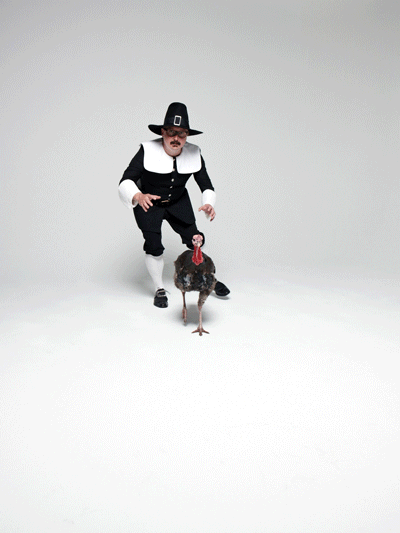Interview by Jana Hoops. Special to the Clarion-Ledger Sunday print edition (April 21)
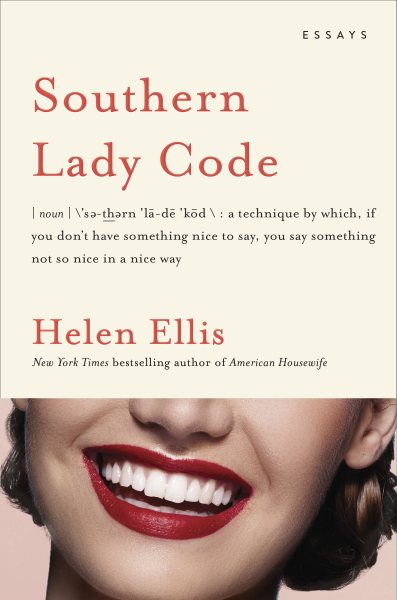 Alabama native and author Helen Ellis has lived in New York City for more than a quarter century, but says she still wears her accent “on her sleeve,” which explains why her newest book is titled Southern Lady Code.
Alabama native and author Helen Ellis has lived in New York City for more than a quarter century, but says she still wears her accent “on her sleeve,” which explains why her newest book is titled Southern Lady Code.
The premise of the 23 true essays which capture as many hilarious and often poignant episodes she’s gotten herself into, is one simple rule: “If you don’t have something nice to say, you say something not so nice in a nice way.”
Ellis also authored Eating the Cheshire Cat and American Housewife. In addition to–and often instead of–calling herself a writer, she also proudly claims the title of “housewife.”
A serious poker plays who learned the game from her father as a child, Ellis competes on the national tournament circuit. She and her husband happily reside in Manhattan.
You grew up in Tuscaloosa and, at age 22, you left for New York City in hopes of becoming a writer. Tell me about the career twists that landed you in the role of housewife–which eventually, with the help of Twitter, led to your success as a writer.
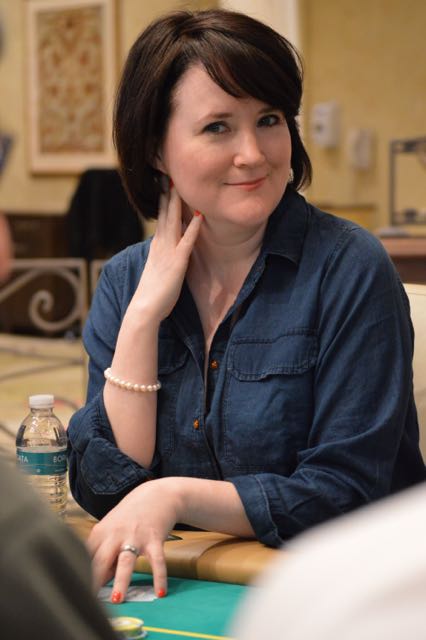
Helen Ellis
It was 1992, and I–dressed in my Talbot’s turtleneck, ankle-length wool plaid skirt, and penny loafers–walked from publishing house to publishing house, dropping my resume at reception desks like calling cards. I had the hopes of being an editorial assistant, but no publishing house called me. I walked into Talbots and got a job on the spot.
Two years later, I got a job at a financial magazine with the hopes of being an editorial assistant. They hired me to drum up subscriptions. I met a young reporter, who drummed up my heart.
A year later, I got into the NYU creative writing program, temped as a secretary, and through that temp agency, landed a long-term job in the chairman’s office of Chanel. I worked four days a week and wrote three.
Scribner published my first book, Eating the Cheshire Cat, in 2000.
I married that young reporter, who became an editor, in 2001.
And then I wrote another book, and nobody published it. And then I wrote another book, and nobody published it. And then I quit my secretarial job to write full time, supported by my husband, wrote another book, and nobody published it. And then I quit writing, and nobody cared.
I settled into a happy life as a housewife. And when people asked me what I did, I didn’t say writer, I said, “Housewife.” The next question was always: “What do you do all day?” I started an anonymous twitter account called @WhatIDoAllDay.
I tweeted about housework and hosting parties and book clubs and the beauty of banality. And then I wrote a story about how a housewife cleans up murders. And then I wrote a story about a book club recruiting a new member with a sinister motive. And then I wrote about what a woman left to her own devices could ultimately do all day. I wrote what I knew. And, 16 years after my first novel, Doubleday published my short story collection, American Housewife. And three years after that, they’ve published Southern Lady Code. This time, the stories are all true.
Explain the phrase “Southern Lady Code,” and how it became the title of your newest book.
Southern Lady Code is: if you don’t have something nice to say, say something not so nice, in a nice way. Twenty-five years in Manhattan, I kept finding myself translating what I’d say to people. “She’s a character” means drunk. Or “He’s an archivist” means hoarder. Or “Bless her heart” means “What an idiot.”
I’ve been tweeting these translations for more than five years. I turned some of those tweets into a short story in “American Housewife.” My … true stories … are now this book. Each essay has a line of code. So, for example, in “Making a Marriage Magically Tidy” I write about how my husband fell in love with a “creative” woman. “Creative” is Southern Lady Code for slob.
The essays which make up Southern Lady Code are not only hilarious, but packed with meaning that makes us pause. Tell me how humor has been important in your life, and how it has become your signature writing style.
I come from a funny family. Some of the best times I’ve had have been at funerals, where relatives and friends try and outdo each other with the most outrageous memories of the deceased. With humor, you can ease pain. And with humor, you can be honest. It’s easier to get your point across when you make the person you’re pointing at laugh. Especially when you’re pointing at yourself.
Poker has been a passion of yours since childhood. Tell us about its role in your life.
There have been times when I wasn’t writing, but I’ve always played poker. Poker is a chance for me to really be myself. I can be nice, but I don’t have to play nice. I can be at the table, but I don’t have to entertain. I can confront bullies and make them back down. I can be brave. And when I lose, and I most certainly do lose, I know there’s always another game. And as with after my losses in writing, when I am lucky enough to win and get published, the success is all the sweeter.
I’ve interviewed many writers who, like you, have moved away from the South, yet no matter how much time passes, they still consider themselves to be Southerners. How would you explain that sentiment?
My roots run deep. And I wear my accent on my sleeve.
Helen Ellis will be at Lemuria on Wednesday, April 24, at 5:00 p.m. to sign and discuss Southern Lady Code.
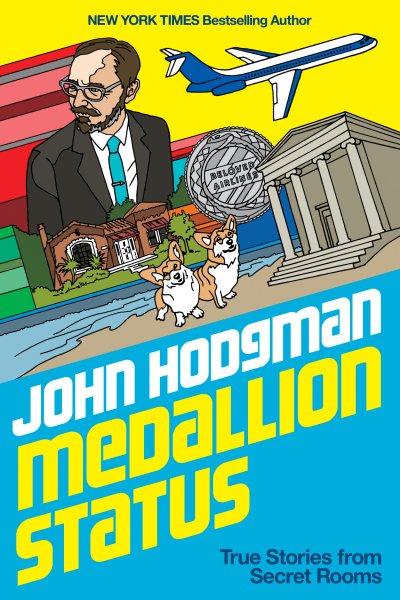 Since so much of John Hodgman’s new memoir, Medallion Status: True Stories from Secret Rooms, is concerned about his dwindling fame, I had to ask myself: how did I come to consider him famous in the first place? I’m in my thirties, so I remember those “Mac vs. PC” commercials and his appearances on the Daily Show. Mostly I just wondered to myself “…he isn’t famous anymore?” I guess I’m thinking of fame in author standards, which is probably a lower bar than for people on television.
Since so much of John Hodgman’s new memoir, Medallion Status: True Stories from Secret Rooms, is concerned about his dwindling fame, I had to ask myself: how did I come to consider him famous in the first place? I’m in my thirties, so I remember those “Mac vs. PC” commercials and his appearances on the Daily Show. Mostly I just wondered to myself “…he isn’t famous anymore?” I guess I’m thinking of fame in author standards, which is probably a lower bar than for people on television.

 This is what bestselling author and Alabama native Helen Ellis calls “
This is what bestselling author and Alabama native Helen Ellis calls “
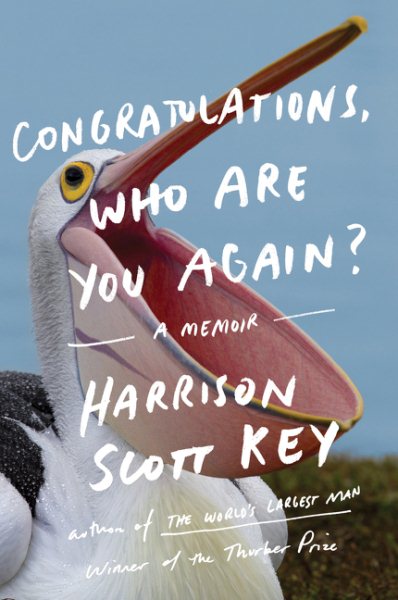 Key has returned with a metatextual sequel called
Key has returned with a metatextual sequel called  I’m not a huge fan of short stories but when I heard that Lauren Groff was coming out with a new book of them, I knew I had to read it. I finished
I’m not a huge fan of short stories but when I heard that Lauren Groff was coming out with a new book of them, I knew I had to read it. I finished 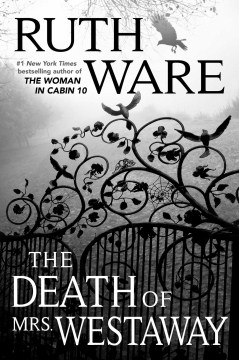 While digging my toes in the sand, I read two page turning mysteries. A tarot reader in dire need of money is told that she has inherited a small fortune in Ruth Ware’s latest thriller,
While digging my toes in the sand, I read two page turning mysteries. A tarot reader in dire need of money is told that she has inherited a small fortune in Ruth Ware’s latest thriller, 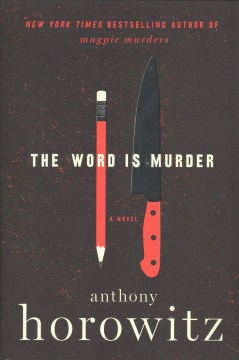 The Word is Murder
The Word is Murder The only book I read in May that isn’t new, was
The only book I read in May that isn’t new, was 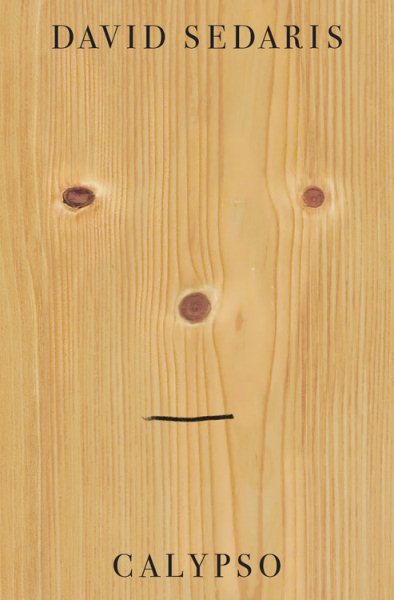 I will lastly mention David Sedaris’ new book
I will lastly mention David Sedaris’ new book 
 Vacationland is a collection of nonfiction essays and reflections about things that happened to Hodgman. I was hooked from the first paragraph when he says “Many people have asked me why I grew [my beard], and most of those people are my wife, and to them and to her I say: I don’t know. I’m sorry.” This almost self deprecating humor is a theme throughout his stories. In his first story, “Dump Jail,” he describes the anxiety his father put upon him when he was told to lie to the men that work at the city dump about where he lived. He wonders what would happen if he was caught in the lie; is there a dump jail that he would have to go to? In “Mongering,” he tells about the “loathsome affectations” he cultivated as a teenager such as playing the viola because it was less popular than the violin.
Vacationland is a collection of nonfiction essays and reflections about things that happened to Hodgman. I was hooked from the first paragraph when he says “Many people have asked me why I grew [my beard], and most of those people are my wife, and to them and to her I say: I don’t know. I’m sorry.” This almost self deprecating humor is a theme throughout his stories. In his first story, “Dump Jail,” he describes the anxiety his father put upon him when he was told to lie to the men that work at the city dump about where he lived. He wonders what would happen if he was caught in the lie; is there a dump jail that he would have to go to? In “Mongering,” he tells about the “loathsome affectations” he cultivated as a teenager such as playing the viola because it was less popular than the violin.